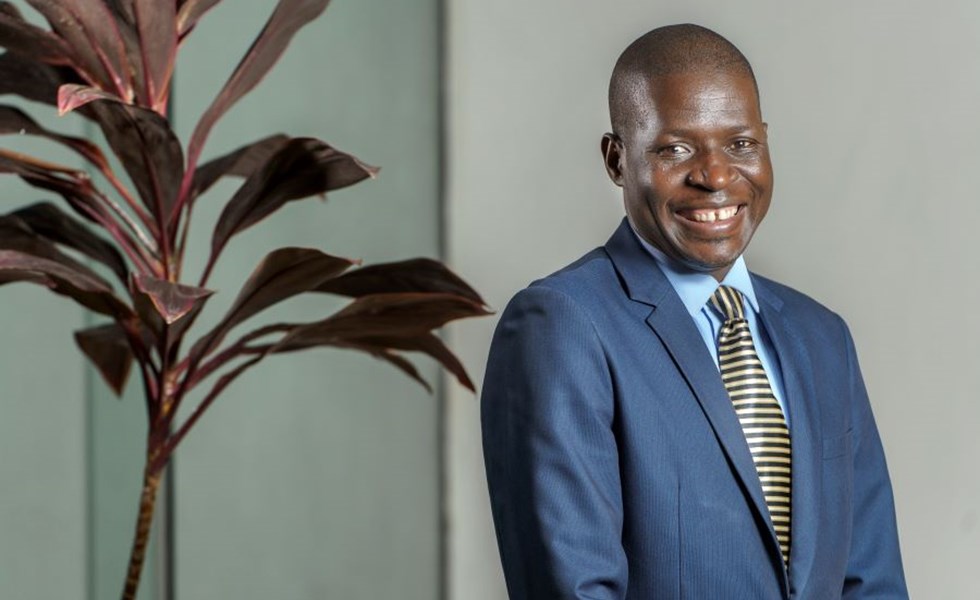“The ELSA-programme strengthens unions”
Yazidi Baligasima of the trade union federation NOTU explains
Ugandan trade unions have a great need for training programmes such as the ELSA programme organised by Mondiaal FNV, according to the union federation NOTU. The training programme helped the participating trade union leaders to improve their negotiation skills, to make their unions more financially sustainable, and also to join forces. This has already resulted in membership growth and better collective bargaining agreements for some unions.

“Due to many changes in staff and the lack of proper training, many union leaders in Uganda don’t have sufficient knowledge and skills to effectively lead their union, explains Yazidi Baligasima of the umbrella organisation of 34 trade unions NOTU, an important partner of Mondiaal FNV. Due to this lack of strong leadership, many unions are also facing financial problems. “Some unions are really on the brink of collapse financially,” the 43-year-old programme manager states. Many trade unions also still work with manual membership registers, still completely on paper. According to Yazidi, the unions should quickly digitise, but many of the older union leaders don’t have the knowledge to make this change. So, there is a great need in Uganda for training programmes such as the ELSA-programme, Yazidi states.
Win-win situation
Many union leaders in Uganda don’t know how to conduct effective salary negotiations. The workshops on negotiations were therefore very educational, says Brenda Oyuga Atieno, assistant programme manager at NOTU, who also participated in the ELSA programme. “We learned, for example, that we should not see employers as enemies but as partners,” says the 33-year-old Ugandan lady. “We have to be flexible, try to keep the atmosphere good, we should listen to the arguments and wishes of the employers and try to make it a win-win situation,” says Brenda, who explains that many salary negotiations and labour disputes in Uganda end up in court. “Due to the enormous number of overdue cases, the waiting time in court is now three to four years. It is therefore much better to find a solution straight with the employers.”
Yazidi also believes that it’s very valuable that the ELSA-programme brings leaders from different unions together. “Normally, union leaders do not have very close contact with each other. But through this programme, they got to know each other very well. They can learn from each other and can now join forces”, the union federation manager says, who adds that the labour market in Uganda is also changing quickly. “We have more and more short-term contracts and informal employees. The unions also want to recruit these people. During the ELSA-programme, union leaders learned from each other which strategies can work with recruiting these informal workers.”
Valuable lessons from other African countries
The programme manager also found it very valuable that trade union leaders from Tanzania, Rwanda and Zimbabwe were invited to talk about their challenges and solutions. For example, a trade unionist from Tanzania talked about their digital membership database and a trade unionist from Rwanda spoke about recruiting and certifying informal workers in the construction industry. “We notice that union leaders across the continent often face similar challenges,” said Yazidi. “It is therefore good if we meet, discuss about possible solutions and learn from each other.”
During the ELSA-programme, the union leaders also learned about the importance of being more aware of the diversity of their membership base. “Young people, the elderly, women and people with disabilities all have different wishes and needs. You have to respond to that, as a trade union, to keep all these different members on board,” Yazidi explains, who adds that unions were previously unaware of this. “As union federation, we therefore have decided to organise an annual youth camp whereby we will organise activities focused on our youth. Hopefully this will make them feel more part of the union and they will better understand the importance of a union,” the programme manager says.
More powerful trade unions
Brenda believes that the ELSA programme makes a major contribution to professionalising the unions. “Thanks to the learned lessons, unions will be able to provide better services to their members what will attract more members. This will help the unions to become stronger and more powerful.”